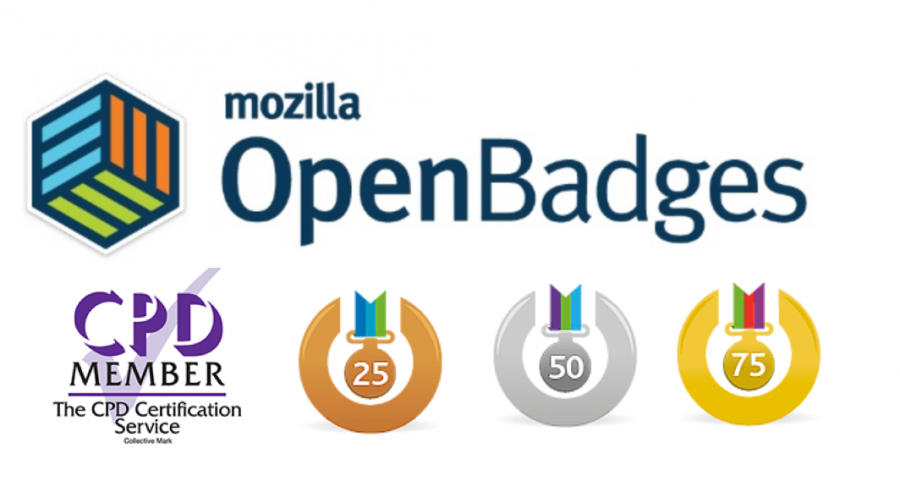
An article for Digital Leaders, published Tuesday 27 March.
From our 21 year standpoint, digital credentialing is one of the most exciting developments in learning for our sector that we’ve seen in recent times. Undoubtedly when skills and achievement are acknowledged, people and organisations flourish. In today’s digital world recognising people’s skills and competencies in a digital way makes perfect sense.
In case you’re not aware digital credentialing is recognising learning achievement through a digital or Open Badge. A bit like a Scout getting a badge but online rather than on the sleeve of a jumper.
They’re designed to be shareable and transferable, reflecting the agile nature of technology. You can put them in a digital backpack, on online CVs, on Linked In, share them across any digital platform and they move with the individual. As badges build upon each other, they can join together to tell the full story of a person’s skills and achievements. They are the digital skills currency for the 21st century. Research[1] shows that on LinkedIn profiles those with certifications and badges receive six times more views.
Digital credentialing, or Open Badging, has gained significant ground in the last few years and has been integrated into businesses around the world. In the UK this includes O2, BBC, IBM, Siemens and hundreds of schools and universities. When City and Guilds set up their own digital credentialing services business, Digitalme, in 2016 this movement got another boost

At Digital Unite we have been embracing this new way of evidencing and celebrating learning for the past few years. Amongst the thousands of Digital Champions we train and support in our Digital Champions Network we know that evidence of professional development is a key motivator for over half of them (55%). These staff members and volunteers are proud of what they have learnt and are learning and they want to share their achievements in their organisations.
Digital credentialing enables us to democratise evidence of digital skills learning and allows us to decide what constitutes reward and how to recognise it. Our 19 Digital Champions courses deliver certain skills and aptitudes and we evidence that in the way the Champions learn and in how they prove they have assimilated knowledge and skill. We then give them a badge when they satisfy us that they can do this.
Digital Champion Terry, is just one example. He has had a long career break but has begun volunteering as a Digital Champion as part of his return to work. Terry says; “I’ve added the badges to my email signature and CV to help me stand out from other applicants.”
To date we have given out more than 9,200 badges across our network of 2,500 Champions. As we introduce badges that recognise how Champions are passing on their skills to bring others online that number will grow further still.
Digital credentialing is shaping the way businesses view their employees; enabling individuals to achieve their career aspirations and organisations to find and develop the talent they need.
It’s very invigorating to consider how digital credentialing might inform the evolution of ‘traditional’ and ‘formal’ accreditation of digital skills. As technology evolves in parallel and as we evolve our use of and for it, so the interpretation of what constitutes meaningful or appropriate digital skills must evolve too. The current Basic Digital Skills consultation will be enhanced by this thinking.
Evolution births opportunity, and opportunities can be empowering.
Just like the Scout movement digital badging can be used to inspire volunteering, to engage communities and to encourage people to develop personally and professionally – and to play much more active, indeed proactive roles, in that process.
Exciting times!
